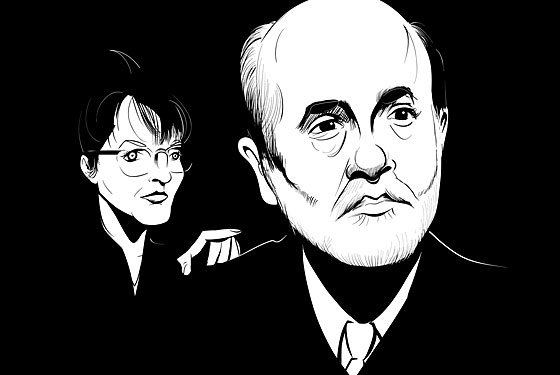
Republicans are officially in open revolt against the policy actions of a Republican economist who served in the Bush White House before being appointed by Bush to a higher office. After Federal Reserve chairman Ben Bernanke announced on November 3 that the central bank would buy $600 billion in government bonds in an effort to lower interest rates and boost the job market, Sarah Palin pounced. “All this pump priming will come at a serious price,” said the bearish Mama Grizzly. The efforts would have inflationary effects. (Now we have to pay attention to what Sarah Palin says about monetary policy?) On November 15, a letter from a group of economists, gold-standard devotees, and right-wing hacks, including William Kristol, similarly went rogue: “The planned asset purchases risk currency debasement and inflation, and we do not think they will achieve the Fed’s objective of promoting employment.” Hell, said GOP senator Bob Corker and congressman Mike Pence, the Fed shouldn’t even bother trying to promote employment—which, along with fighting inflation, is one of its two mandated missions. Said Pence, “It’s time for the Fed to be solely focused on price stability.”
This outburst against Bernanke would be bizarre even if inflation weren’t at its lowest levels since they started keeping records during the Eisenhower administration. Creating money and buying Treasury bonds in an attempt to move interest rates—that’s simply what the Fed does. “This is just monetary policy,” as a slightly exasperated Bernanke put it. But apparently, practices that were perfectly acceptable when carried out by Republicans now threaten the republic.
To make any normal governmental tactic taboo, just add “unless a Democrat is in the White House” on the end. (Remember at camp when kids tried to make ordinary conversation hilarious and saucy by tacking the words in bed onto the end of every sentence? It’s a bit like that.) So it’s acceptable for the Fed to make heroic efforts to boost the economy and promote employment—unless a Democrat is in the White House. After the Lehman Brothers crash, the Fed rushed in—guaranteeing money-market funds, the commercial paper market, and vast tracts of the financial sector. In just under two months, the Fed more than doubled the size of its balance sheet to $2.2 trillion—about the size it is today. Funny, I don’t remember Palin squawking then.
Bernanke’s easy-money policies—he took the federal-funds rate down to zero in December 2008 and has left it there—are inspiring gales of right-wing angst. But in 2003, Alan Greenspan slashed the rate to 1 percent and held it there for a year, even as the economy was growing. (As I recall, the maestro’s emergency seemed to be that Bush was becoming unpopular.) It’s fine to keep rates at emergency-low levels—unless a Democrat is in the White House.
When the national debt nearly doubled during the Bush years, Republicans didn’t complain much. But once the debt began rising under Obama, it became toxic. “Deficits don’t matter,” Dick Cheney said—unless a Democrat is in the White House.
It goes on. Maverick senator John McCain favors immigration reform and cap-and-trade— unless a Democrat is in the White House. Senators filibustering and slow-walking judicial appointments is reprehensible—well, unless. To former Massachusetts governor and likely presidential candidate Mitt Romney, an individual health-care mandate is a legislative achievement—unless. At which point it becomes an assault on freedom.
Now, politics without hypocrisy would be like Times Square without the tourists. But this is different. Is it possible that resurgent Republicans are trying to intimidate the Fed into abdicating its responsibilities? Is the GOP not entirely onboard with promoting economic recovery? What a thought! After all, everyone knows the Republicans have always been the party of growth—unless a Democrat is in the White House.
Gross is economics editor at Yahoo Finance
Have good intel? Send tips to intel@nymag.com.